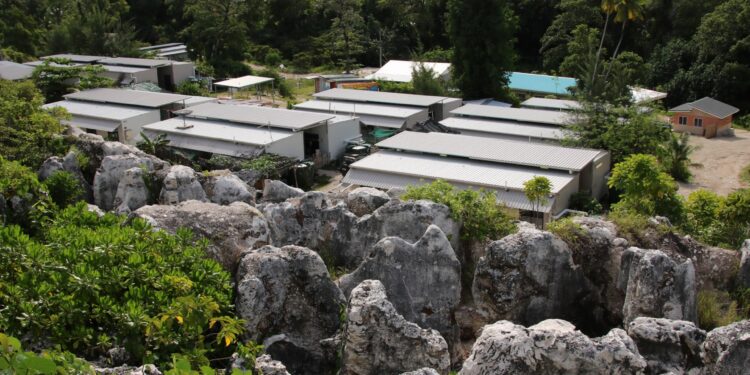In a step raising more questions than providing answers, the administration of US President Donald Trump imposed a 30% customs definition on imports from the Republic of Nauru, the smallest island country in the world, located in the southern Pacific.
This step, which comes within the “Liberation Day” commercial package, puts Nauru (an area of only 21 square kilometers) in the ranks of targeted economies, along with China, which has been imposed on an average of 54%.
A small economy in the heart of a storm
Despite its remote location, Nauru was not escaped from the new American commercial protection wave. In 2023, the United States imported a commodity of only one million dollars, including 272 thousand dollars of computers, and $ 388,000 of pig meat and sausages, according to Bloomberg.
However, Washington decided to treat this small country – which does not exceed a third of the area of the Manhattan region in New York – on an equal footing with major economies in Asia, with “mutual” definitions without the origins of the threat or its economic feasibility.
The fishing sector is targeted
The fees may also include the fishing rights that Nauru sells to American companies, which represent the main source of hard currency in the island’s economy after draining its phosphate reserves. These rights allow foreign ships to hunt tuna and other fish in their territorial waters for a fee calculated on the basis of “hunting days”.
If the fees include these rights, the American operating companies there will bear a 30% increase on their current prices, which may complicate their work at a time when the American fishing industry faces major challenges that include the loss of the marine citizen and the excessive bulldozing of resources.
Nauru .. from wealth to bankruptcy
Nauru – according to Bloomberg – witnessed a prosperity in the 1970s thanks to phosphate exports mainly of marine bird waste accumulated for thousands of years. But with the depletion of these resources and the state’s failure to diversify its economy, income collapsed, and the island turned into one of the victims of what is known as the “curse of resources”.
Today, many of its wealth remains, and it has been transformed from a rentier economy to a fragile model based on aid, and limited exports that include fishing rights and some technical and food commodities.
Why are Nauru targeting?
According to Bloomberg, the new fees on Nauru are not presented any clear economic benefit to America. On the one hand, the United States cannot manufacture more fish or phosphate to compensate for imports, and on the other hand, imposing taxes on imports does not exceed one million dollars does not constitute a “effective tool” for political or economic pressure.
In a satirical interpretation, the report believes that customs duties are a kind of “economic compliment”, as the importing state recognizes that its competitors are superior to it in some sectors, so it resorted to imposing drawings to equal the cuff. But in the case of Nauru, there is no need for this “compliment”.
Ultimately, this condition shows an absurd aspect of the customs duties policies adopted by the Trump administration, according to Bloomberg. If these drawings are aimed at rebuilding the American industry, is it logical to impose it on a country that has only one path of less than 20 kilometers, and an economy based on fishing?



